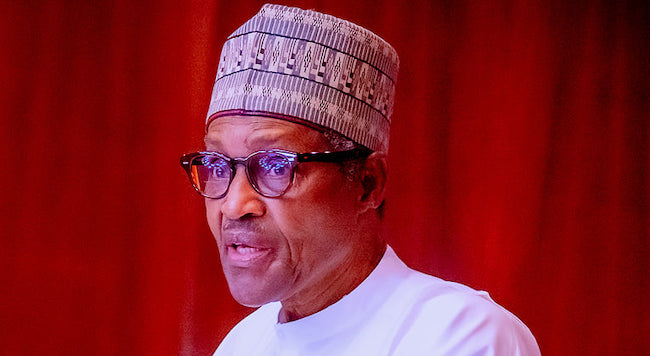Business
New NBS report contradicts Buhari’s claim on Nigeria’s economy

A report by the National Bureau of Statistics (NBS) has rubbished claims made by President Muhammadu on how the policies of his administration has impacted on the nation’s economic security.
President Buhari said his government’s policies had helped protect Nigeria against the negative impact the Russia-Ukraine war, as well as the COVID-19 pandemic had on the global economy.
He said the administration had made investments in the last seven years to ensure food security in Nigeria, which prepared the country for the inevitable disruptions in global agricultural supply.
Buhari made the assertion on Friday, via his official Twitter account. He defended his statement by citing that Nigeria once depended on rice importation, but now produces.
“Because of our policies and investments in the last seven years, towards achieving food security, Nigeria is today much better prepared to cope with the inevitable disruptions in global agricultural supply chains occasioned by Covid-19 and the Russia-Ukraine war.
“I said we must grow what we eat and eat what we grow. We have always been very conscious of the need to achieve food security in Nigeria, and to encourage our local farmers and rural economies.
“This is a country that was once dependent on foreign rice. Confident that we can grow and eat Nigerian rice, we closed the border to foreign rice, and also put policies in place to support local production. Today Nigerians are eating home-grown rice.” He tweeted.
Read also:‘Show treasury looters that crime does not pay,’ Buhari challenges African leaders on corruption
NBS report contradicts President Buhari’s claim
In its monthly consumer price index (CPI), which monitors prices of goods and services purchased by Nigerian households, the NBS disclosed on Friday that inflation soared to 18.6% in June, from 17.71% in May.
This is the highest level in 65 months. This means last month recorded the highest cost of living in five years, with food inflation soaring to 20.60%, as prices of common household food, bread and cereals, food products, yam, meat, fish and oil skyrocketed.
NBS report indicated that the ripple effect of Russia-Ukraine war and the leftover effect from COVID-19 pandemic spilled into Nigeria, raising cost of living, despite Buhari stating that his policies were protecting the country from the disruption and shocks caused by the two events.
Ripples Nigeria had also previously reported that the Managing Director of Financial Derivatives Company, Bismarck Rewane, said Nigeria’s headline inflation will be around 44.51% if the NBS reconstruct the country’s inflation calculation.
Rewane, who was once among the economic advisory team of President Buhari, said the current food and non-food inflation figures do not reflect the economic realities in Nigeria.
He explained that the “CPI ought to be reviewed every five years to reflect the changing households’ consumption patterns especially in the face of COVID-19 which altered spending patterns as well as Nigeria’s changing demographics.”
Join the conversation
Support Ripples Nigeria, hold up solutions journalism
Balanced, fearless journalism driven by data comes at huge financial costs.
As a media platform, we hold leadership accountable and will not trade the right to press freedom and free speech for a piece of cake.
If you like what we do, and are ready to uphold solutions journalism, kindly donate to the Ripples Nigeria cause.
Your support would help to ensure that citizens and institutions continue to have free access to credible and reliable information for societal development.
























